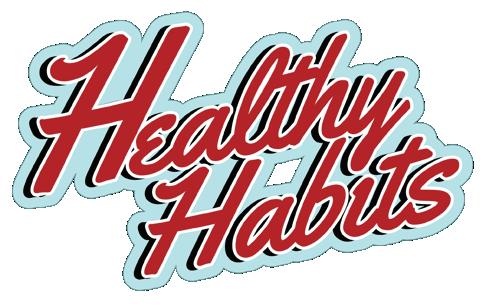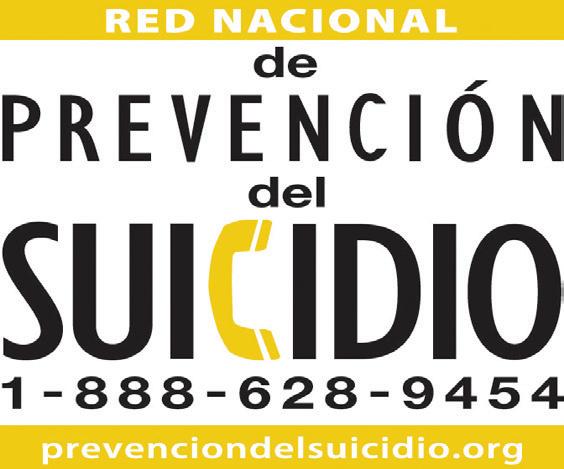
11 minute read
Health/Salud
Blood Sugar Testing
Blood sugar testing is an important part of diabetes care. If you have diabetes, self-testing your blood sugar (blood glucose) can be an important tool in managing your treatment plan and preventing diabetes complications. You can test your blood sugar at home with a portable electronic device (glucose meter) that measures sugar level in a small drop of your blood. Your doctor will advise you how often you should check your blood sugar level. In general, the frequency of testing depends on the type of diabetes you have and your treatment plan. Type 1 diabetes. Your doctor may recommend blood sugar testing four to 10 times a day if you have type 1 diabetes.
You may need to test before meals and snacks, before and after exercise, before bed, and sometimes during the night. You may also need to check your blood sugar level more often if you are ill, change your daily routine or begin a new medication. Type 2 diabetes. If you take insulin to manage type 2 diabetes, your doctor may recommend blood sugar testing a few times a day, depending on the type and amount of insulin you use. Testing is usually recommended before meals and at bedtime if you're taking multiple daily injections.

Weather Radio Good Investment
NOAA Weather Radio All Hazards (NWR) is a nationwide network of radio stations broadcast ing continuous weather information directly from the nearest National Weather Service office. NWR broadcasts official Weather Service warnings, watches, forecasts and other hazard information 24 hours a day, 7 days a week. Working with the Federal Communication Commission’s (FCC) Emergency Alert System , NWR is an “All Hazards” radio network, making it your single source for comprehensive weather and emergency information. (En español, p. 21)

Caregiver Support Program

The Caregiver Program provides support needed by families to assist them in maintaining their caregiver roles in the 15-county region. The caregiver must be 18yrs of age and care recipient 60 and over. Services provided are: • Respite Care Vouchers, service is provided on a temporary basis while the caregiver is unavailable or needs relief; For the caregiver who needs relief caring for their loved one. • Minor Residential repair services such as wheelchair ramps, heating and cooling and plumbing repairs. Must be homeowner. • Health Maintenance such as durable medical supplies and equipment; • HomeMeds Medication Management (Evidence Based Initiative) For more information and to see if you qualify for FREE services, call 806-7628721 or 806-687-0940.
What is Autism?
Autism is a complex developmental disability that typically appears during the first three years of life and affects a person’s ability to communi- cate and interact with others. Autism is defined by a certain set of behaviors and is a “spectrum disorder” that affects individuals differently and to varying degrees. There is no known single cause for autism, but increased awareness and funding can help families today. The prevalence of autism had risen to 1 in every 150 American children, and almost 1 in 94 boys. The issuance of this report caused a media uproar, but the news was not a surprise to ASA or to the 1.5 million Americans living with the effects of autism spectrum disorder. Nonetheless, the spotlight shown on autism as a result of the preva-
lence increase opens opportunities for the nation to consider how to serve these families facing a lifetime of supports for their children. Autism is treatable. Children do not “outgrow” autism, but studies show that early diagnosis and intervention lead to significantly improved outcomes. Here are some signs to look for: • Lack of or delay in spoken language • Repetitive use of language and/or motor mannerisms (e.g., hand-flapping, twirling objects) • Little or no eye contact • Lack of interest in peer relationships • Lack of spontaneous or makebelieve play • Persistent fixation on parts of objects. Call your doctor for more info. ¿Que es el autismo?
El autismo es una incapacidad relativa al desarrollo mental que típicamente aparece durante los tres primeros años de vida. Es resultado de un trastorno neurológico que afecta el funcionamiento del cerebro, el autismo y sus comportamientos asociados pueden ocurrir en 1 de cada 150 individuos. El autismo es cuatro veces más frecuente en los niños que en las niñas y no conoce las fronteras raciales, étnicas y sociales. El ingreso económico, el modo de vida y los niveles educativos de la familia, no afectan la posibilidad de que estos casos se ocurren. El autismo impacta al desarrollo normal del cerebro en áreas relacionadas con la interacción social y las habilidades comunicativas. Los niños y adultos con autismo típicamente tienen deficiencias en la comunicación verbal y no verbal, en las interacciones sociales y en las actividades de ocio y juego. Sin embargo, es importante distinguir el autismo de otras condiciones: •Dificultad en juntarse con otros niños •Insistencia en todo identico, resistencia a cambios de rutina •Risa y sonrisa inapropiadas •Ningún temor real a los peligros •Poco o ningún contacto visual •Insensible a métodos normales de enseñanza •Juegos raros ininterrumpidos •Aparente insensibilidad al dolor •Ecolalia (repetición de palabras y frases en vez de un lenguaje normal) •Prefiere estar solo; posee una manera reservada • Dificultad en expresar sus necesidades; emplean los gestos o señalan a los objetos en vez de usar palabras. Para mas informacíon visita su doctor.
Noticias de salud/ Health News
FREE COVID-19 VACCINES, BOOSTERS
The City of Lubbock Public Health Department is offering booster shots for all available COVID-19 vaccines will be by appointment only at the health department. They’ll be offering FREE COVID-19 vaccines (ages 5+), boosters, flu shot and regular immunizations. Please call the City of Lubbock Public Health Department at 806-775-2933. SOUTH PLAINS FOOD BANK To receive a food box from SPFB, you still need to qualify through one of our partnering agencies and receive a voucher. You can call 2-1-1 or visit www.211texas. org to find a local agency that is giving our vouchers. Citizens are still required to bring all documentation needed to see if you qualify. HEALTHBEAT EQUIPMENT brings the best of the gym to the great outdoors at Buddy Holly Lake of Cesar Chavez Drive The outdoor fitness equipment is available to the public and has 10 pieces of fitness equipment. This is a project of Los Hermanos Familia. FREE. FREE CLINIC at Lubbock Impact The Free Clinic holds a free doctors clinic every Wednesday at 34th Street and Boston Avenue. Registration begins at 4 PM. Patients must be 18 and older and medically uninsured to receive free medications and doctors visits. For more info call (806) 799-4320.
FREE SICK CHIL-
DREN'S CLINIC is a free, all-volunteer clinic that treats sick children up to age 15 at 10th Street and Avenue A. Prescriptions at the on-site pharmacy are free. Call 762-1805 for more info. FAITH BASED AA for Lubbock and the surrounding area, Thurs. from 6:30-8:00 P.M. and Sundays from 7-8 P.M. For more info call 806-793.3336.
FREE PARENTING CLASSES
Family Guidance & Outreach Center provides free anger management classes and parenting classes. For more information or to register for a class, call 747-5577. Visit us online: www.familyguidancecenterlubbock. org.
2-1-1 NON-EMERGENCY QUES-
TIONS 2-1-1 is a free help line answered 24 hours a day, 7 days a week, which will link you to health and community services.

Health/ salud
Alcohlism Are you at risk?
If you are worried that your family's history of alcohol problems or your troubled family life puts you at risk for becoming
alcoholic, here is some common–sense advice to help you: Avoid underage drinking— First, underage drinking is illegal. Second, research shows that the risk for alcoholism is higher among people who begin to drink at an early age, perhaps as a result of both environmental and genetic factors. Drink moderately as an adult— Even if they do not have a family history of alcoholism, adults who choose to drink alcohol should do so in moderation— no more than one drink a day for most women, and no more than two drinks a day for most men, according to guidelines from the U.S. Department of Agriculture and the U.S. Department of Health and Human Services. Some people should not drink at all, including women who are pregnant or who are trying to become pregnant, recovering alcoholics, people who plan to drive or engage in other activities that require attention or skill, people taking certain medications, and people with certain medical conditions. People with a family history of alcoholism, who have a higher risk for becoming dependent on alcohol, should approach moderate drinking carefully. Maintaining moderate drinking habits may be harder for them than for people without a family history of drinking problems. Once a person moves from moderate to heavier drinking, the risks of social problems (for example, drinking and driving, violence, and trauma) and medical problems (for example, liver disease, brain damage, and cancer) increase greatly. Talk to a health care professional—Discuss your concerns with a doctor, nurse, nurse practitioner, or other health care provider. They can recommend groups or organizations that could help you avoid alcohol problems. If you are an adult who already has begun to drink, a health care professional can assess your drinking habits to see if you need to cut back on your drinking and advise you about how to do that.

Alcoholismo ¿Está usted a riesgo?

Si le preocupa que la historia familiar de alcoholismo o los problemas de su vida en familia lo pongan en riesgo de convertirse en una persona alcohólica, aquí se ofrecen consejos de sentido común para ayudarle: Si es menor de edad, evite consumir bebidas alcohólicas—En primer lugar, hacerlo es ilegal. En segundo lugar, la investigación demuestra que se corre mayor riesgo de convertirse en una persona alcohólica, cuando se comienza a beber a edad temprana, probablemente como resultado tanto del medio como de factores genéticos. Como adulto, beba moderadamente—Aún cuando no exista antecedente de alcoholismo en la familia, aquellos adultos que eligen consumir bebidas alcohólicas deben hacerlo con moderación; en el caso de la mayoría de las mujeres, no más de una bebida por día; en el caso de la mayoría de los hombres, no más de dos bebidas al día, de acuerdo con las recomendaciones del Departamento de Agricultura y del Departamento de Salud y Recursos Humanos, de Estados Unidos. Algunas personas no deberían beber en absoluto, incluyendo mujeres que están embarazadas o están intentando hacerlo; personas que están recuperándose del alcoholismo; cualquier persona que anticipa tener que conducir un automóvil o llevar a cabo alguna otra actividad que requiera atención o pericia; personas que se encuentran tomando ciertos medicamentos y personas con determinadas condiciones médicas. Las personas con antecedente familiar de alcoholismo, que corren mayor riesgo de desarrollar dependencia, deberían encarar el consumo moderado de alcohol con prudencia. Es posible que les resulte más difícil mantener hábitos de consumo moderados, que a otras personas en cuyas familias no existe historia de alcoholismo. Una vez que una persona pasa del consumo moderado de alcohol a tomar en exceso, el riesgo de problemas sociales (como por ejemplo, conducir bajo la influencia, violencia y trauma) y los problemas médicos (como por ejemplo, enfermedad hepática, daño cerebral y cáncer) aumentan considerablemente.
Hable con un profesional de la salud—Discuta sus preocupaciones con un médico, enfermera u otro profesional de la salud. Pueden recomendarle grupos u organizaciones que posiblemente lo ayuden a evitar problemas con el alcohol. Si usted es una persona adulta que ya ha comenzado a beber, un profesional de la salud puede evaluar sus hábitos con respecto al consumo del alcohol y determinar si fuera necesario que disminuya el consumo y cómo hacerlo.
Lubbock Housing Authority will open the Public Housing waiting list for the following:
2 Bedroom (2-4 persons unless ADA exception) & 3 bedroom (3-6 persons Applicants will have the week of April 18, 2022 to April 29, 2022 to enter their application online. Waitlist Open: April 18, 2022 at 7:00 a.m. Waitlist Close: April 29, 2022 at 11:00 a.m.
Applications may be completed by going to LHA website at www.lubbockha.org and clicking on application link.
If you do not have access to a computer, you may go to local libraries near you or use one at our main office 1708 crickets Ave. during normal business hours M-Th 7 am to 4 pm Fri 7am to 11 am. Contact the Housing Authority Intake Department at (806)776-2316 if you have questions. ONLINE APPLICATION PROCESS IS REQUIRED!!!
Elderly or disabled individuals requesting reasonable accommodation in the process should call 806-762-1191 for assistance. For the hearing-impaired call TTY Relay Texas 1-800-735-2989.
Vaccines are for ALL AGES!
Children need immunizations at Birth, 2, 4, 6, 12, & 18 months 4-6 years & 11-12 years
806 18th Street 806.775.2933 Adults need a Flu vaccine every year and other vaccines as recommended by a physician.
STOP hunting down shot records...
For Adults & Children

Free Secure Confidential Electronic Doctor Accessible






